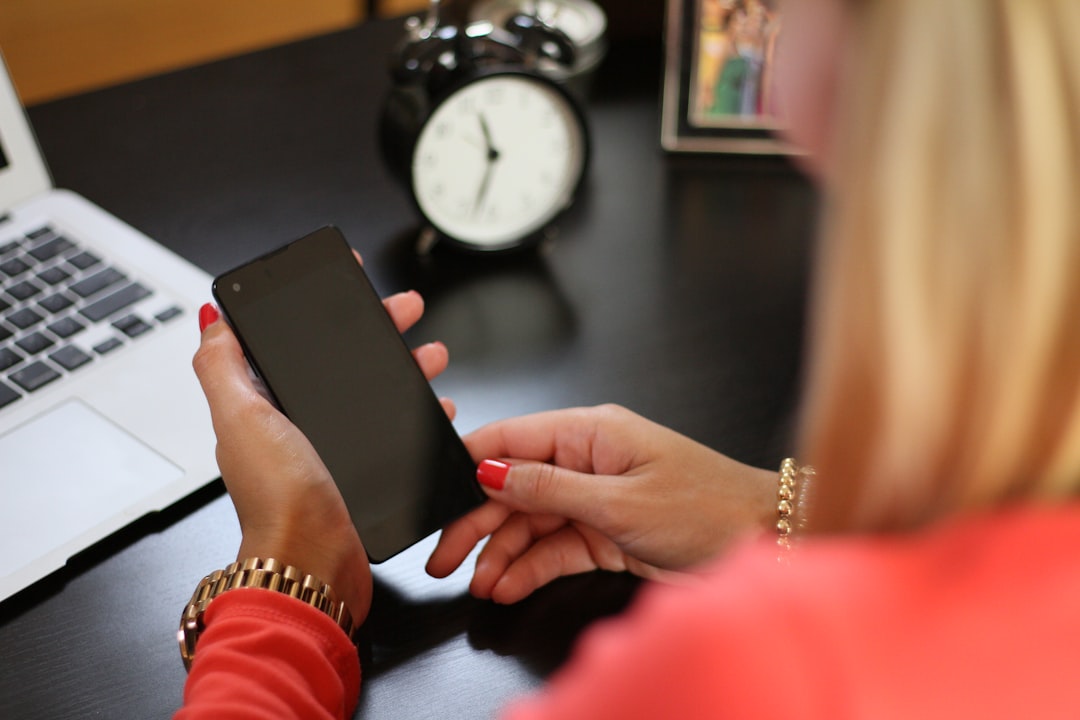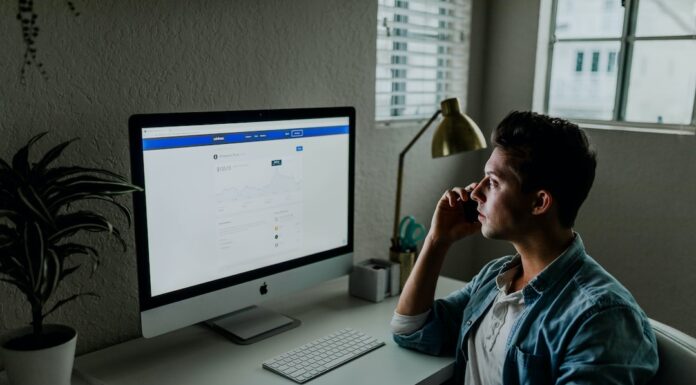With more people working from home than ever before, it’s easy to get distracted by kids, pets, housework, social media, and more. Staying focused is crucial for getting work done and being productive, but it can feel impossible some days. This post will cover proven strategies to minimize distractions and stay on task when working from home. You’ll learn how to create an ideal home office environment, set a schedule, take breaks effectively, leverage productivity tools, and train your brain to focus. With these practical tips, you can reduce digital and household disturbances and accomplish more daily. Read on to transform your remote work experience!
Define Distractions
When working from home, distractions can be detrimental to your productivity. Distractions are anything that takes your focus away from the task at hand. Some common work-from-home distractions include:
- Email notifications – The constant ding of new email alerts can easily distract you. Having your email open all day leads to frequently checking it instead of focusing on your work.
- Social media – Platforms like Facebook, Instagram, and Twitter are endless sources of distraction. It’s tempting to take a quick break to scroll through updates, but this can turn into longer social media surfing sessions.
- Household tasks – When working at home, household chores like laundry or cleaning can pull you away from your desk. While these tasks need to get done, they can disrupt your workflow.
- Phone calls and texts – Personal phone calls and texts are another interruption unique to the work-from-home environment. Like social media, these quick diversions can accumulate into bigger distractions.
- Noisy household members – Spouses, children, pets, and other family members at home during the day can cause noise distractions. Loud TVs, music, talking on the phone, and other commotions can break your concentration.
- Daydreaming – Without the structure of an office setting, it’s easy to lose focus and start daydreaming instead of working. Letting your mind wander interrupts productivity.
Awareness of these common work-from-home distractions is the first step to avoiding them and staying focused. Implementing strategies to minimize distractions is key to maintaining productivity when working remotely.
Causes of Distractions When Working from Home
Working from home comes with a unique set of distractions that can derail your productivity. Understanding what causes you to get distracted is the first step to avoiding them. Here are some of the main causes of distractions when working remotely:
- Boredom – When you are bored with the task at hand, it’s easy to lose focus and start browsing the web or checking your phone. Doing repetitive or mundane tasks for long periods can lead to boredom and wandering attention.
- Stress – Feeling overwhelmed or anxious makes it more difficult to concentrate. You may find yourself procrastinating as a way to avoid stressful tasks. Stress also leads to emotional exhaustion which reduces your ability to focus.
- Lack of separation between work and home – Without physical separation between your workspace and personal space, it’s easy for non-work-related distractions at home to interfere with work. Things like chores, errands, pets, and family members, can all be sources of distractions.
- Open office environments – When working in a shared office space, conversations, phone calls, people walking by, etc. can easily break your focus. Even small interruptions force you to exert mental energy to get back on track.
- Remote work isolation – Working alone at home can feel isolating. You may crave social interaction and find yourself drawn into browsing social media or messaging others.
- Digital distractions – Emails, notifications, instant messages, and the internet provide endless distractions. The constant stream of new information makes it challenging to stay focused on one task for extended periods.
Being aware of what tends to distract you is important. You can take proactive steps to create an environment and system that sets you up for success when working from home.
Effects of Distractions
Distractions can have a major negative impact on productivity and focus. Studies show that the average office worker is interrupted every 11 minutes, and it can take over 20 minutes to get back on task after an interruption. This context switching ends up costing significant time throughout a workday.
Research by Gloria Mark at the University of California, Irvine found that a typical office worker is distracted from their current task about every 3 minutes. Over a typical 8-hour workday, these small distractions can add up to over 2 hours of lost productivity.
The cost of these distractions is also significant in terms of dollars and cents. An oft-cited estimate is that distractions cost the US economy $588 billion annually in lost productivity. For an individual worker, it’s estimated that the cost of lost productivity due to distractions can be over $5,000 per year.
Distractions take a major toll on productivity, focus, and the bottom line. By minimizing distractions, remote workers can reclaim huge amounts of wasted time and refocus their efforts on meaningful work.
Remove Email and App Distractions
One of the biggest distractions when working from home is the constant stream of notifications from email, messaging apps, and social media. These apps are specifically designed to grab our attention, disrupting focus and productivity.
To reduce digital distractions:
- Disable email and messaging app notifications on your devices. This prevents you from getting pulled into responding every time you get an alert. Instead, set specific times during the day to check emails and messages, such as right before lunch and at the end of the workday.
- Hide distracting apps like social media when working. On desktop computers, exit out of them. On smartphones, use focus modes or app-blocking tools to hide apps during set work hours. Out of sight, out of mind.
- If you need music or ambient noise while working, use an app or website that provides it without other distractions built in.
- Schedule breaks away from screens as well. Stand up and stretch, go for a short walk, listen to music, or meditate. Giving your mind a reset helps boost your focus when you return to work.
By removing digital distractions, you can stay absorbed in meaningful work instead of context-switching between apps and alerts. Set yourself up for productivity success by streamlining your device setup.
Create a Dedicated Workspace
Having a dedicated workspace at home is crucial for staying focused and avoiding distractions while working remotely. Setting up an office area helps establish a clear separation between work and home life. This distinction makes it easier to get into a focused “work mode” when in your workspace.
There are several tips for optimizing your home office setup for improved concentration:
- Remove clutter and clear your desk regularly – Mess can be mentally distracting and make focusing more difficult. Keep only essential items on your desk.
- Invest in a comfortable desk and office chair – Proper ergonomics help you stay alert and avoid physical discomfort from distracting you.
- Minimize noise by closing doors and windows – Use noise-canceling headphones or play soft background music to dampen unpredictable noises.
- Control lighting to avoid glare – Natural lighting is great but avoid bright light behind your monitor. Use lamps to reduce eye strain.
- Declutter walls and shelves – Limit decorations and personal items. Blank walls help maintain focus on work tasks.
- Add plants – Houseplants can boost mood and concentration while also improving indoor air quality.
- Establish office hours – Structure when you will use your workspace and stick to a routine. Don’t do non-work activities there.
Optimizing your home office setup by minimizing distractions can improve your productivity and ability to stay focused while working remotely. Invest time in creating a space devoted to deep-focus work.
Take Regular Breaks
Taking regular breaks throughout the day is crucial for maintaining focus and avoiding mental fatigue when working from home.
When you work for hours on end without giving your mind a chance to recharge, you become far more susceptible to distractions. It becomes increasingly difficult to concentrate and you may find yourself getting pulled into non-work activities like checking social media just to give your brain a break.
Aim to take a break every 45-60 minutes. This gives your mind and body a chance to relax without completely losing focus. Short breaks of 5-15 minutes are ideal.
During breaks, it’s best to completely step away from your work. Get up, stretch, walk around, grab a healthy snack, or drink some water. Avoid checking your phone or email so your mind can fully recharge.
Consider doing a brief meditation, listening to calming music, or getting fresh air outside if possible. Just a few minutes of breathing and quiet reflection helps clear your head so you can return to work feeling focused.
The key is not to let your breaks drag on too long. Use a timer so they don’t accidentally turn into 30+ minute distractions. Keeping breaks consistent and short prevents you from falling out of focus while still giving your mind the periodic rest it needs.
Set a Schedule
Setting and sticking to a schedule is crucial for staying productive when working from home. Having a routine helps you stay focused by clearly defining work hours and providing structure. Without a schedule, work and personal time can easily blend, making it harder to fully disengage from work.
Some key benefits of a schedule include:
- Creates boundaries – A schedule separates work and personal time so you’re not working 24/7. This allows you to be fully present during work hours and fully relaxed after hours.
- Provides focus – Knowing what you need to accomplish each day/week keeps you focused instead of aimlessly bouncing between tasks.
- Boosts productivity – Routines maximize your productivity by allocating time to deep work. You can get more done in less time.
- Reduces stress – The structure of a schedule reduces uncertainty about what you should be doing. You’ll feel less overwhelmed.
Here are some tips for creating and sticking to a productive WFH schedule:
- Identify your most productive hours and do your most important work then. Batch similar tasks together.
- Build in buffer time between meetings and tasks. This allows you to fully reset between activities.
- Take regular breaks to recharge. Stick to a consistent lunch schedule.
- Create daily and weekly plans to map out activities and set deadlines. Re-evaluate each week.
- Use calendars to schedule blocks of time for tasks and appointments. This keeps you accountable.
- Allow for flexibility but limit major schedule changes. Adapt your schedule as needed.
- Reward yourself when you stick to your schedule. Acknowledge small wins.
- Communicate your schedule with colleagues so they know when you’re available. Block off focus time.
With some planning and discipline, a schedule removes the guesswork and sets you up to maintain productivity when working remotely. Start by creating a schedule tailored to your habits and needs. Revisit it often to make any necessary adjustments.
Leverage Productivity Tools
Productivity apps and tools can be extremely helpful for minimizing distractions and staying on task when working from home. Here are some top recommendations:
Use Website Blockers
Website blockers allow you to restrict access to distracting websites that tend to suck up your time. Some popular options include:
- Freedom: Allows you to block websites and apps for customized periods. You can schedule recurring blocks.
- BlockSite: Blocks websites across different browsers and devices. Allows customization based on time and location.
- Cold Turkey: Simple free website blocker for Windows and Mac. Provides timed blocks and allows blocking by keyword as well.
Try Time Trackers
Time-tracking apps help you stay aware of how you are spending your time. Some options:
- Toggl: Provides detailed time tracking and reporting on how you use your time. Browser extensions and mobile apps are available.
- RescueTime: Runs silently in the background and tracks where you spend your time on websites and apps. Gives productivity scores.
- Clockify: Free time tracker with calendar integration, powerful reports, and team features.
Use Calendar Apps Effectively
Calendar apps like Google Calendar and Outlook Calendar help you schedule your time and prevent distractions. Make sure to:
- Block time for focused work. Use calendar blocks or appointments with yourself.
- Limit meetings and calls. Schedule only necessary meetings and consolidate when possible.
- Schedule breaks and divide tasks into time blocks.
- Set notifications and reminders for meetings and deadlines.
- Integrate calendars with other tools like email to automatically update your schedule.
With the right productivity apps and disciplined calendar management, you can minimize digital distractions when working remotely. The key is being proactive about how you spend your time.
Stay Focused
Staying focused while working from home can be challenging with all the potential distractions around you. Here are some tips to help you concentrate better:
- Turn off notifications on your computer and phone. Email, chat, and social media notifications can interrupt your work every few minutes. Mute them so you’re not tempted to check.
- Work in chunks. Focus for 30-60 minutes at a time, then take a short 5-10 minute break before resuming. This helps avoid mental fatigue.
- Set daily goals. Knowing what you want to accomplish each day provides motivation and focus. Break large projects into smaller tasks.
- Remove physical distractions. Things like clutter on your desk, TV, or music in the background can all reduce concentration. Create a clean, quiet workspace.
- Avoid multitasking. Switching between tasks lowers productivity. Stick to one task at a time until it’s complete before moving to the next item.
- Take breaks when stuck. If you’re stuck on a problem, walk away and come back to it later with fresh eyes. Getting some distance can spark new ideas.
- Reward yourself when successful. Celebrate progress and milestones. It reinforces motivation and discipline.
Implementing these focus and productivity tips will help you stay on track while working from home. Eliminate distractions, create structure, and boost your concentration.











